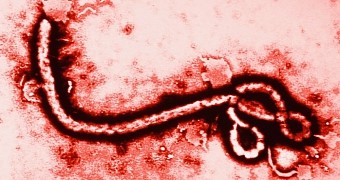In December 2013, the Ebola virus, whose existence was first documented back in 1976, made a comeback in Guinea. The virus has since spread to several other countries, and has come to infect and kill thousands of people.
Since the onset of the ongoing Ebola epidemic in West Africa until now, cases of people infected with the deadly virus have been reported in several other countries such as the US and Spain.
The outbreak has claimed so many lives that, in a statement issued earlier this year, the World Health Organization referred to it as the largest event of this kind to have until now been recorded anywhere in the world.
Looking to help prevent the deadly virus from spreading any further and contain the outbreak, scientists with the University of Texas at Austin in the US are now working on a nasal spray vaccine that they say could offer protection against Ebola.
The nasal vaccine against Ebola
In a statement issued this past November 3, the specialists behind this research project explain that the nasal spray vaccine against Ebola they currently have in the works has so far only been tested on non-human primates.
They go on to detail that, having administered this vaccine to several non-human primates, they documented a survival rate of 100% when they exposed the animals to Ebola Zaire. It's important to note that the animals were exposed to the virus 150 days after immunization.
By comparison, just 50% of the non-human primates that were administered the vaccine the old-fashioned way, i.e. by means of intramuscular injection, survived after being exposed to the deadly virus, the researchers go on to explain.
Why choose a nasal vaccine over a shot?
The University of Texas at Austin scientists say that, first off, their nasal vaccine appears to offer long-lasting protection against the deadly virus. What's more, they argue that the costs of administering such a vaccine are considerably lower than the ones associated with regular shots.
“The main advantage of our vaccine platform over the others in clinical testing is the long-lasting protection after a single intranasal dose. This is important since the longevity of other vaccines for Ebola that are currently being evaluated is not fully understood.”
“Moreover, the nasal spray immunization method is more attractive than a needle vaccine given the costs associated with syringe distribution and safety,” researcher Kristina Jonsson-Schmunk explained in a recent interview.
Not yet a smoking-gun against Ebola
The specialists working on developing this nasal spray vaccine against the Ebola virus wish to stress that, despite their success in keeping non-human primates safe from the disease, the fact of the matter is that they are not yet ready to share their vaccine with the general public.
Thus, they explain that the next step is to test its effectiveness in a series of clinical trials involving human volunteers. Otherwise put, it will probably be a while until this nasal spray vaccine is made available to folks in West Africa.
Commenting on the importance of this research project, specialist Kristina Jonsson-Schmunk pointed out that “Ebola causes devastating outbreaks with fatality rates of 25–90 percent in Africa and Asia. Although progress has been made in understanding the virus’ biology, no licensed vaccines or treatments currently exist.”
“There is a desperate need for a vaccine that not only prevents the continued transmission from person to person, but also aids in controlling future incidences,” the researcher went on to argue.
It is understood that the University of Texas at Austin scientists are to offer a detailed account of their work this coming November 5 during a meeting of the American Association of Pharmaceutical Scientists in San Diego, US.

 14 DAY TRIAL //
14 DAY TRIAL //